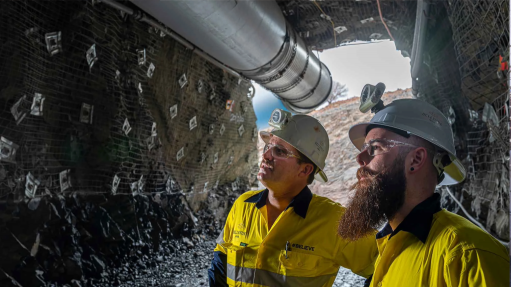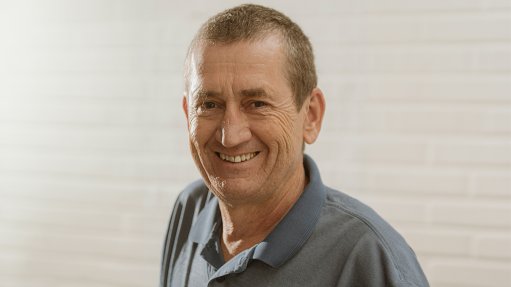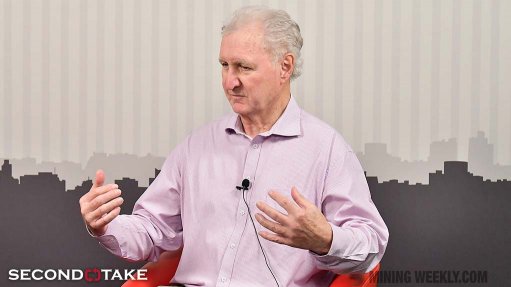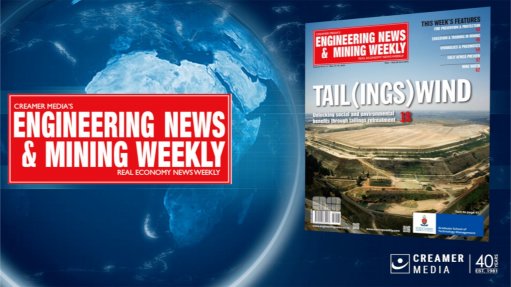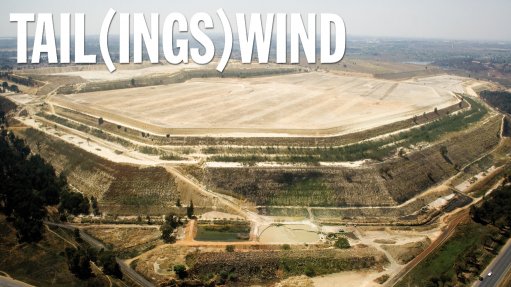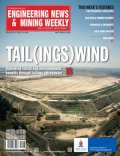Natural resource geopolitics at centre of African conflicts
Natural resource geopolitics were at the centre of understanding why Africa had become a battleground affected by conflicts that were marginalising Africans and preventing them from reaching their full potential, Southern African Liaison Office (Salo) board member Richard Smith said last month at the Building Regional and International Consensus workshop, hosted by Salo, in Pretoria.
He noted that, instead of considering areas or cases of conflict in isolation, such as those that took place in the Democratic Republic of Congo (DRC) and the Central African Republic (CAR), one had to see conflict as being part of a larger system.
“Conflict is interconnected with trade routes and corridors across borders. It impacts on communities and districts, as well as on a regional, national and international level. A complex interconnection of dynamics is at the core of understanding the situation and seeking solutions that will address not only the dynamics in one particular community but also the conflict systems that are affecting the entire continent,” Smith said.
He added that the emergence of war econo- mies could not be separated from the shifting of power with the rise of China and the scramble for African resources.
“Similarly the illicit trade of diamonds cannot be separated from the interconnected trade routes that also allow for the destructive and illegal free flow of small arms and the often multipurpose partnerships between traders,” Smith added.
He explained that all of these factors tied into the cycles of violence that are connected to Africa’s war economies.
“Those war economies become self-perpetuating cycles of violence. Resource wealth that is illegally secured . . . funds malicious activity and enables the acquisition of more arms, which are, in turn, used to acquire more resources. Throughout this cycle, resources, small arms and the funding of malice are linked and it is this cycle that has to be broken to find a long- term solution,” he explained.
Meanwhile, he pointed out that this African situation was occurring within a historical context that had to be taken into account.
“This historical context includes colonialism, fragile and manipulated governance systems and an approach to African resource exploitation that is still marked by a disregard for the lives of the people who are displaced, exploited and abused during the mining and resource acquisition process.
“There is a particular attitude linked to African resource exploitation that has to be questioned in terms of who the mineral resources actually belong to and who should benefit from them,” he said.
If the conflict in the DRC and CAR was considered from a conflict systems perspective, it became clear that an integrated systems response would be required to solve the problem, Smith said.
He added that the Kimberley Process, aimed at stemming the trade of conflict diamonds, was such a system, but that the effectiveness of the process depended on and could not be separated from the broader institutional, systemic and structural transformation required.
Smith stated that an integrated systems response aimed at dealing effectively with conflict had to rest on three essential pillars.
The first pillar had to deal with ways in which the conflict and violence could be contained and their escalation could be prevented.
“However, simply preventing the escalation of conflict and violence is not enough. Systems, structures and institutions that proactively seek to build the necessary future systems to prevent conflict also have to be put in place, which forms the second pillar.”
The third pillar had to focus on ensuring compliance.
“When member States act outside of the predetermined guidelines, there has to be measures in place that would provide incentives for the particular country to return to the system, but there should also be penalties for noncompliance,” he said.
Smith added that there were processes for this, such as the UN Global Compact and the Organisation for Economic Cooperation and Development’s guidelines for multinational enterprises. However, these guidelines were voluntary and did not include measures to hold members accountable.
“The way forward requires a new form of partnership that recognises the value of different stakeholders within the integrated response while it seeks to build a new form of cooperative partnership,” he said.
A new tripartite cooperative partnership had to be formed between government, members of civil society and the corporate sector to coordinate and build the structures to protect, provide information on and respond to conflict before it became violent.
“This will enable those who are intent on shifting the balance of power and ensuring that the benefits of mineral resources are shared more equitably can begin to isolate those that use illegal and violent means to secure profits.
“It is necessary to isolate and marginalise those countries and companies, as they clash with the future vision of what the African continent should look like,” he concluded.
Comments
Press Office
Announcements
What's On
Subscribe to improve your user experience...
Option 1 (equivalent of R125 a month):
Receive a weekly copy of Creamer Media's Engineering News & Mining Weekly magazine
(print copy for those in South Africa and e-magazine for those outside of South Africa)
Receive daily email newsletters
Access to full search results
Access archive of magazine back copies
Access to Projects in Progress
Access to ONE Research Report of your choice in PDF format
Option 2 (equivalent of R375 a month):
All benefits from Option 1
PLUS
Access to Creamer Media's Research Channel Africa for ALL Research Reports, in PDF format, on various industrial and mining sectors
including Electricity; Water; Energy Transition; Hydrogen; Roads, Rail and Ports; Coal; Gold; Platinum; Battery Metals; etc.
Already a subscriber?
Forgotten your password?
Receive weekly copy of Creamer Media's Engineering News & Mining Weekly magazine (print copy for those in South Africa and e-magazine for those outside of South Africa)
➕
Recieve daily email newsletters
➕
Access to full search results
➕
Access archive of magazine back copies
➕
Access to Projects in Progress
➕
Access to ONE Research Report of your choice in PDF format
RESEARCH CHANNEL AFRICA
R4500 (equivalent of R375 a month)
SUBSCRIBEAll benefits from Option 1
➕
Access to Creamer Media's Research Channel Africa for ALL Research Reports on various industrial and mining sectors, in PDF format, including on:
Electricity
➕
Water
➕
Energy Transition
➕
Hydrogen
➕
Roads, Rail and Ports
➕
Coal
➕
Gold
➕
Platinum
➕
Battery Metals
➕
etc.
Receive all benefits from Option 1 or Option 2 delivered to numerous people at your company
➕
Multiple User names and Passwords for simultaneous log-ins
➕
Intranet integration access to all in your organisation







